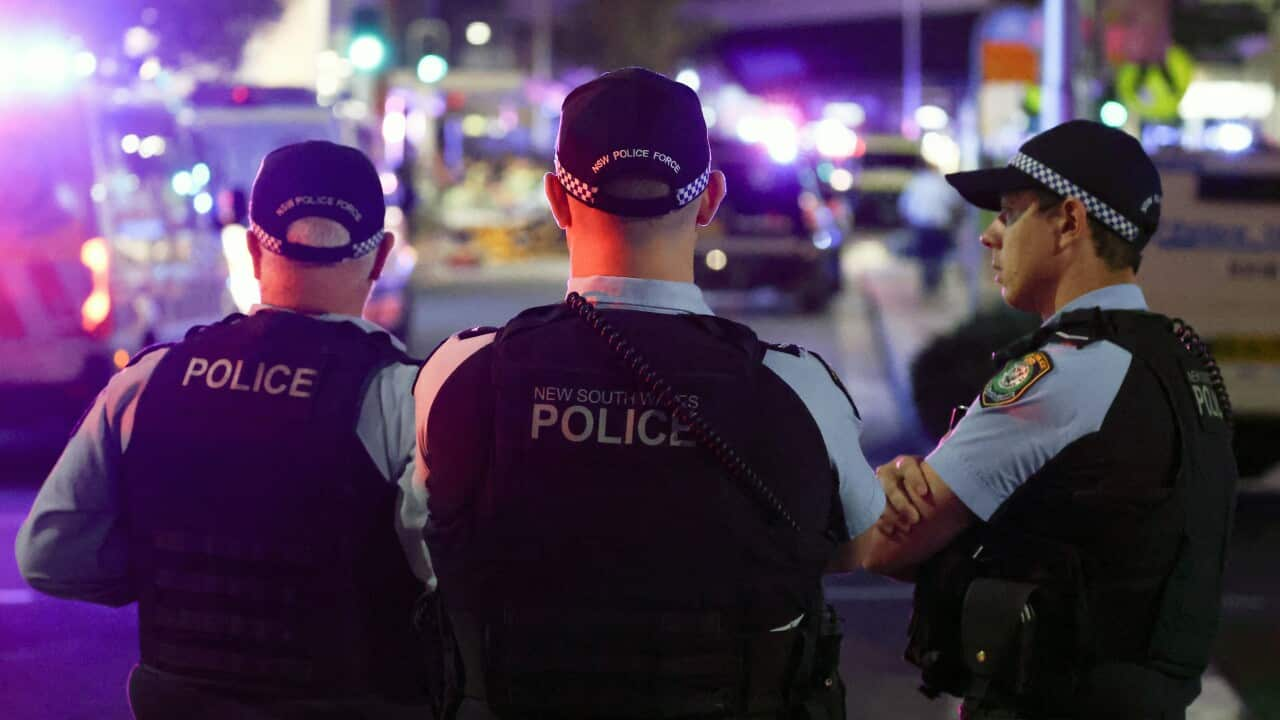After three stabbing incidents in Sydney, tougher knife laws could be on the horizon for NSW.
An hospitalised two clergymen on Monday, while and 12 injured at a Bondi Junction shopping centre on Saturday.
On Friday, an 18-year-old was killed and a 19-year-old wounded in an attack near a school in Doonside.
Now, Premier Chris Minns has said he would not rule out increasing knife laws.
“It’s a combustible situation and I’m not going to sugarcoat it,” Minns told Sydney radio 2GB on Tuesday.
“We increased knife laws about six months ago, , the NSW paramedic, but I’m not prepared to rule anything out right now.
“Obviously, when people are being killed, and you’ve got a situation where a knife is being used, then it would be irresponsible not to look at it.”
So what are the laws and penalties for carrying knives in Australia?
NSW
The NSW government recently doubled the maximum penalties for possessing or wielding a knife in a public place.
Under legislation introduced to parliament in June 2023, the Crimes Act was amended to include the offences of having a knife in a public place or school and wielding a knife in a public place or school.
The maximum jail term for those offences increased from two to four years while the maximum fine for possessing a knife increased from $2200 to $4400, and for wielding a knife to $11,000.
Queensland
In February, new laws were passed in Queensland banning the sale of knives to people under the age of 18 after a woman was stabbed at a shopping centre.
The new laws make the sale of knives, replica firearms including gel blasters, and edged weapons such as machetes, axes, and swords to juveniles, an offence.
It is not legal to possess a knife in a public place or school unless a person has a “reasonable excuse”.
A person caught carrying a knife in a public place risks a fine of up to $5750 or one year in prison.
Victoria
In Victoria you cannot carry knives in public, apart from utility knives with a blade no longer than 10cm, unless you have a lawful excuse.
A lawful excuse can include carrying a knife for work, for recreation such as fishing, or for display or exhibition. Self-defence is not a lawful excuse.
A person caught carrying a knife can go to jail for one year. Selling a knife to a person under 18 can result in a fine of up to $46,154 or up to two years in jail.
ACT
Under the ACT Crimes Act, it is not legal to possess a knife in a public place or school without a “reasonable excuse”.
A reasonable excuse can include a knife being required for work, preparation of food, participation in lawful recreation or sport, exhibiting a knife for trade or exhibition, wearing an official uniform, or for religious purposes.
A person possessing a knife without a reasonable excuse can face a fine of up to 10 penalty units ($1600 for an individual) or six months in prison.
Tasmania
In Tasmania, it is illegal to carry knives in public places unless there is a lawful purpose, such as a tradesman who uses a knife in their work.
People can carry knives for recreational activities such as camping or fishing.
It’s illegal to carry a pocket knife or multi-tool in a public place unless it’s needed for a specific lawful activity.
A person carrying a knife in a public place could face up to two years in prison or a fine of up to 50 penalty units ($9,750).
South Australia
In South Australia, most types of knives are considered a prohibited weapon and cannot be carried in a school or public place without an exemption.
The maximum penalty is $2500 or six months in prison.
It is also an offence to sell a knife to a person under the age of 16, and the maximum penalty is a fine of up to $20,000 or two years in prison.
Western Australia
In Western Australia, most types of knives are classified as either prohibited or controlled weapons and cannot be carried without a lawful excuse.
A person who tries to carry a prohibited weapon, bring one into the state, or manufacture or sell a prohibited weapon, can face a maximum fine of $36,000 or three years in prison.
A person who carries or possesses a controlled weapon can face up to two years in prison or a fine of $24,000.
Northern Territory
In the Northern Territory, it’s illegal to possess a sword or knife in a public place without a lawful excuse.
A person found guilty of carrying a prohibited weapon without a reasonable excuse can face a maximum of two years in prison or 400 penalty units ($70,400).
For a controlled weapon, the maximum penalty is one year in prison or 200 penalty units ($35,200).
With additional reporting by the Australian Associated Press.
